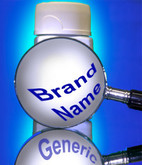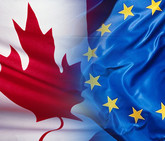Generics/General
EGA calls for removal of competition and trade barriers for generics
The European Generic medicines Association (EGA) is calling on the EU to remove barriers to competition and free trade by introducing common sense reforms to European pharmaceutical intellectual property rules.
FDA increases oversight of drug safety in India
The US Food and Drug Administration (FDA) has created an Office of Pharmaceutical Quality in response to quality concerns at home and abroad, particularly surrounding generic medicines from several Indian manufacturing plants [1].
Brand-name drugs also cut healthcare costs
Generics are often given all the praise when it comes to cutting costs for patients and payers, but, according to a piece in Forbes, brand-name drugs also cut healthcare costs.
FDA starts widespread testing of generics
The US Food and Drug Administration (FDA) has allocated US$20 million for testing generics and has already been assessing generics since September 2013, despite no announcement having been made.
Rising generics use triggers increased worldwide regulation
The increasing use of lower cost generics is prompting regulators across the globe to introduce stricter regulations focusing on the quality of these products.
South African HCPs told to ‘get their facts straight’ on generics
The South African National Association of Pharmaceutical Manufacturers (NAPM) urged healthcare professionals (HCPs) to ‘get their facts straight’ with respect to generics at a special workshop held at the Johannesburg Country Club on 17 October 2013.
Canada-EU trade deal will extend patents for two years
On 18 October 2013, Canada and the European Union (EU) reached agreement on a trade deal, which will free the movement of goods, services, investment and labour between the two regions, but has been criticized by generics makers for delaying access to medicines.
Australians pay too much for generics
According to the Consumers Health Forum of Australia (CHF), a body which represents healthcare consumers, Australians are paying way too much for their generic drugs.
Generics applications under review by EMA – 2013 Q3
Last update: 4 October 2013
Generic medicines in Europe can be approved either centrally via the European Medicines Agency (EMA) or nationally via the local regulatory body [1]. Approval by EMA takes place by using a centralized procedure. This leads to approval of the product in all 27 EU Member States and in Norway, Iceland and Liechtenstein. At a country level, if approval in a single EU Member State only is required, this can take place using the national procedure. However, as soon as a company seeks approval in two or more Member States, a decentralized procedure or mutual recognition procedure must be used [2].
Australian generics association releases new code of practice
Australia’s Generic Medicines Industry Association (GMiA) announced on 26 September 2013 the release of the draft third edition of the GMiA Code of Practice, which incorporates a number of new amendments.













